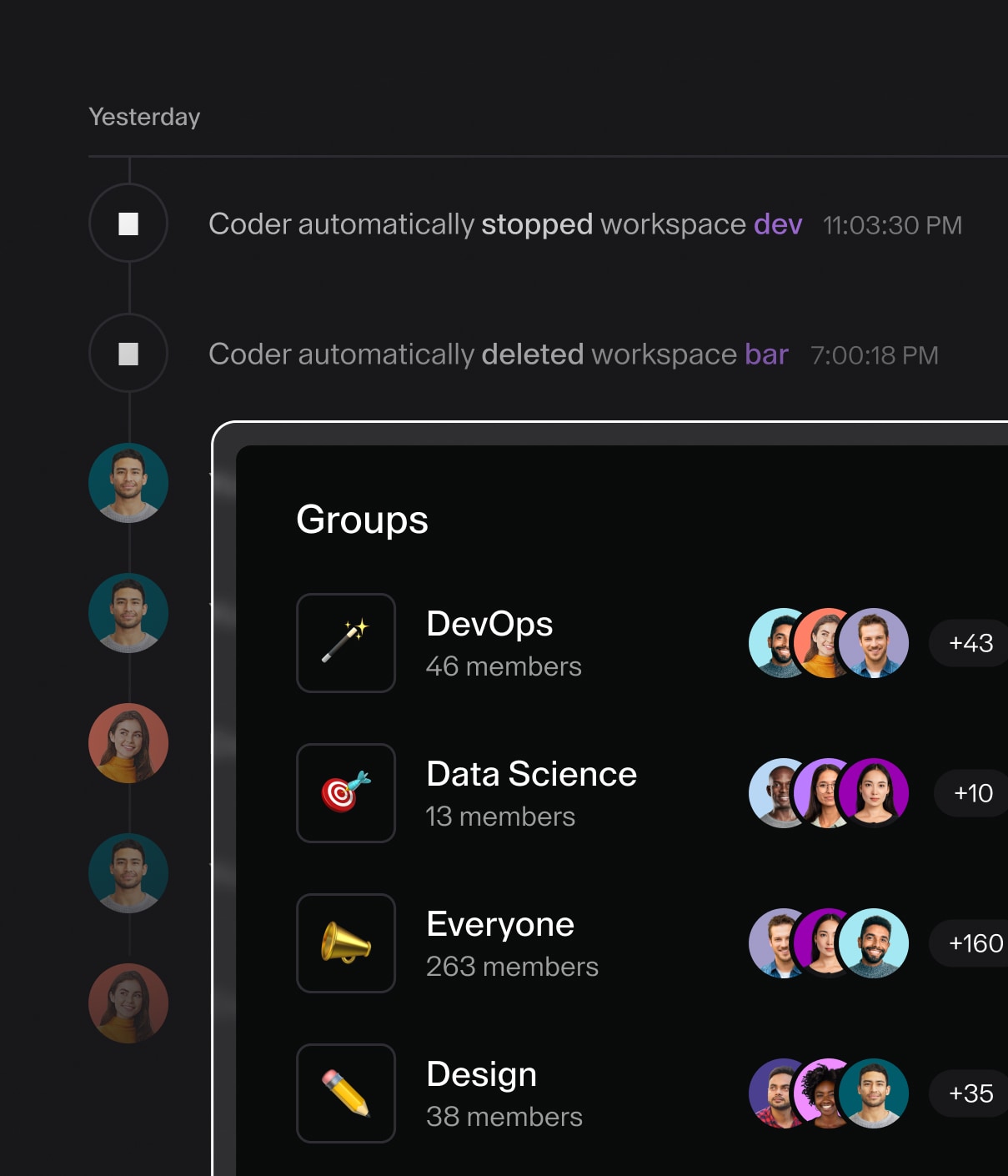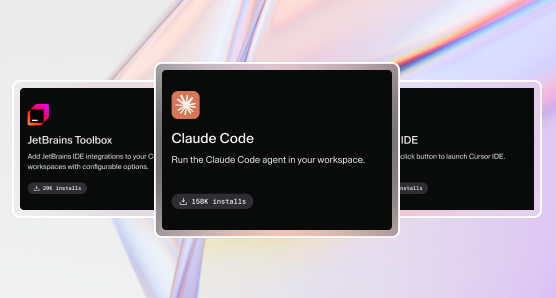Secrets
This article explains how to use secrets in a workspace. To authenticate the workspace provisioner, see this.
Coder is open-minded about how you get your secrets into your workspaces.
Wait a minute...
Your first stab at secrets with Coder should be your local method. You can do everything you can locally and more with your Coder workspace, so whatever workflow and tools you already use to manage secrets may be brought over.
For most, this workflow is simply:
- Give your users their secrets in advance
- Your users write them to a persistent file after they've built their workspace
Template parameters are a dangerous way to accept secrets. We show parameters in cleartext around the product. Assume anyone with view access to a workspace can also see its parameters.
Dynamic Secrets
Dynamic secrets are attached to the workspace lifecycle and automatically injected into the workspace. For a little bit of up front template work, they make life simpler for both the end user and the security team.
This method is limited to services with Terraform providers, which excludes obscure API providers.
Dynamic secrets can be implemented in your template code like so:
resource "twilio_iam_api_key" "api_key" {
account_sid = "ACXXXXXXXXXXXXXXXXXXXXXXXXXXXXXXXX"
friendly_name = "Test API Key"
}
resource "coder_agent" "dev" {
# ...
env = {
# Let users access the secret via $TWILIO_API_SECRET
TWILIO_API_SECRET = "${twilio_iam_api_key.api_key.secret}"
}
}
A catch-all variation of this approach is dynamically provisioning a cloud service account (e.g GCP) for each workspace and then making the relevant secrets available via the cloud's secret management system.
Coder SSH Key
Coder automatically inserts an account-wide SSH key into each workspace. In MacOS
and Linux this key is at ~/.ssh/id_ecdsa. You can view and
regenerate the key in the dashboard at Settings > SSH keys.


